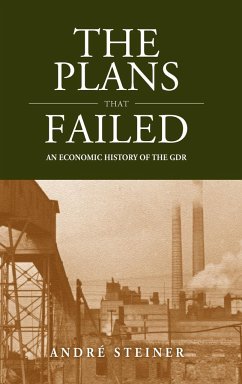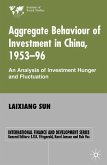"So far there has been a dearth of studies on the economic history of the GDR, unlike the recent surge of general historical accounts. Based on an exceptional knowledge of the literature and well supported by a number of key, so far unpublished, documents, this book fills the gap. André Steiner fully succeeds in his attempt, managing to produce from highly complex material a very accessible text for a wide readership without sacrificing analytical quality." · H-Soz-u-Kult The establishment of the Communist social model in one part of Germany was a result of international postwar developments, of the Cold War waged by East and West, and of the resultant partition of Germany. As the author argues, the GDR's 'new' society was deliberately conceived as a counter-model to the liberal and marketregulated system. Although the hopes connected with this alternative system turned out to be misplaced and the planned economy may be thoroughly discredited today, it is important to understand the context in which it developed and failed. This study, a bestseller in its German version, offers an in-depth exploration of the GDR economy's starting conditions and the obstacles to growth it confronted during the consolidation phase. These factors, however, were not decisive in the GDR's lack of growth compared to that of the Federal Republic. As this study convincingly shows, it was the economic model that led to failure. André Steiner is the Research Director of the Department of Economic and Social History at the Center for Contemporary History Potsdam (ZZF) and Professor of economic and social history at the University of Potsdam. He has been a Research Fellow at Institutes for Economic History in Berlin and Mannheim and was Professor at the Ruhr University Bochum. His publications include Die DDR-Wirtschaftsreform der sechziger Jahre: Konfl ikt zwischen Effi zienz- und Machtkalkül (Berlin, 1999); Von Plan zu Plan: Eine Wirtschaftsgeschichte der DDR (Munich, 2004); and Preispolitik und Lebensstandard: Nationalsozialismus, DDR und Bundesrepublik im Vergleich (editor, Cologne, 2006).








